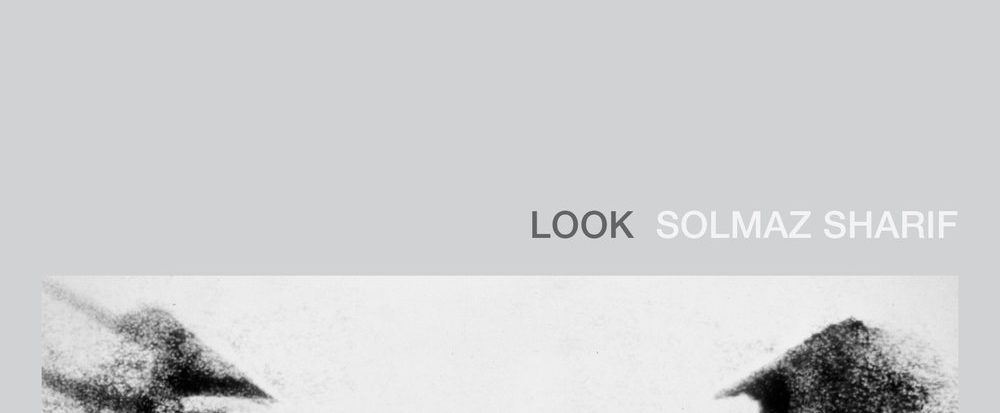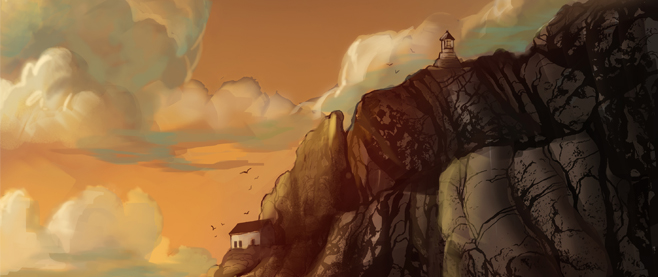
Poetry at the Crossroads of Self and State
Poetry magazine has been published for more than a century, and their influence has waxed and waned throughout. Their long-term stature is sunk deep into the crust of the earth, having printed verse and verse-adjacent prose with an admirable and singular focus. But to snotty young (-ish) poets like myself, there have been times when the mag has been less than exciting, losing hold of its influence. Which is as these things should go, even in as low-stakes a game as poetry. Because to stop moving forward is to die, and in defiance of the eternal void Poetry has stomped on the gas for the past couple of years. The magazine has taken the temperature of the room, putting out poems made of hot fire under a variety of guest editors across race, gender, and continent, with issues collecting work by both established and newer poets that is genuinely exciting again.
One such author is Solmaz Sharif, though she’s really a new or unestablished poet. Despite having only one book out she’s a very accomplished professor and a regular in other journals and at conferences. In fact she’s appeared in Poetry at least five times, and her 2016 book Look was a finalist for the PEN Open Book Award, the National Book Award, and won the 2017 American Book Award for poetry. And frankly, that’s not enough awards as far as I’m concerned. I studied alongside Sharif and read early drafts of her book, finding myself continually stunned by her work and so awed by Look that I regularly gift copies to anyone with a sniff of interest.
If nothing else, because she’s been in Poetry so many times I am satisfied that the magazine has its shit together. The subjectivity of reading poetry notwithstanding, Sharif’s dedication to the craft and to the humanity that ultimately propels the greatest works of this genre is without challenge. But I’m not here to merely blow smoke; rather, I’d like to talk a little bit about her recent poem in the April issue of Poetry, “The Master’s House”.
Please go read this poem. It exemplifies what I treasure most about Sharif’s work: a judicious use of radical empathy, a need to connect the dots between the ashes and the potential of human kind. Using a kind of initial anaphora, where every line hurtles from the same source (in this case primarily a “to [verb]” construction), she keeps the poem roiling with longer and longer lines. This building up of memory and thought has seemingly tenuous connections that casually reveal themselves in key repetitions, primarily of the title “The Master’s House”, referencing Audre Lorde’s “The Master’s Tools Will Never Dismantle the Master’s House”. Sharif, an American poet whose parents were exiled from Iran, is taking stock of her homes and houses in this and all of her work: the emotional, physical, and state structures that support and limit us at the same time. She is building through them with language, while investigating that language, particularly near the end:
“To say, for example, Shah dictator bude-ast translates to The Shah was a dictator, but more literally to The Shah is was a dictator
To have a tense of is-was, the residue of it over the clear bulb of your eyes
To walk cemetery after cemetery in these States and nary a gravestone reading Solmaz”
Sharif lays out the persistence of history, not only in our language but in our bones. The Shah was and forever will be a dictator, obscuring to even some small degree the narrator’s vision. And still, in the United States she has called home all her life, her first name is singular and distinct, casting her as other among the living and the dead.
There is much to critically analyze in Sharif’s work, but it’s not a cipher or puzzle merely meant to be parsed. I found plenty to look up while reading “The Master’s House”, from the history of Ethel Rosenberg to “de terroir,” and understood that to get to know someone is to learn something new. Sharif is sharing the light that winds through her neural pathways through her heart as she considers herself and her family, as when the narrator’s father with a shotgun butting his chest, pleading in Farsi, “his most desperate language.”
Sharif shows us these charged moments with clarity, the kind of coolness where one senses the grinding teeth at the edge, a mask of civility. She has high standards for love and the state, as we all should, when she says “To finally admit out loud then I want to go home”—to give life to this vulnerability frees her, to concede a desire for home emboldens us. It’s a too precious thing to leave to those without our best interests at heart. One can be certain they don’t read poetry, so perhaps it’s another crowbar we can use to obliterate their houses and reconstruct them for ourselves.





